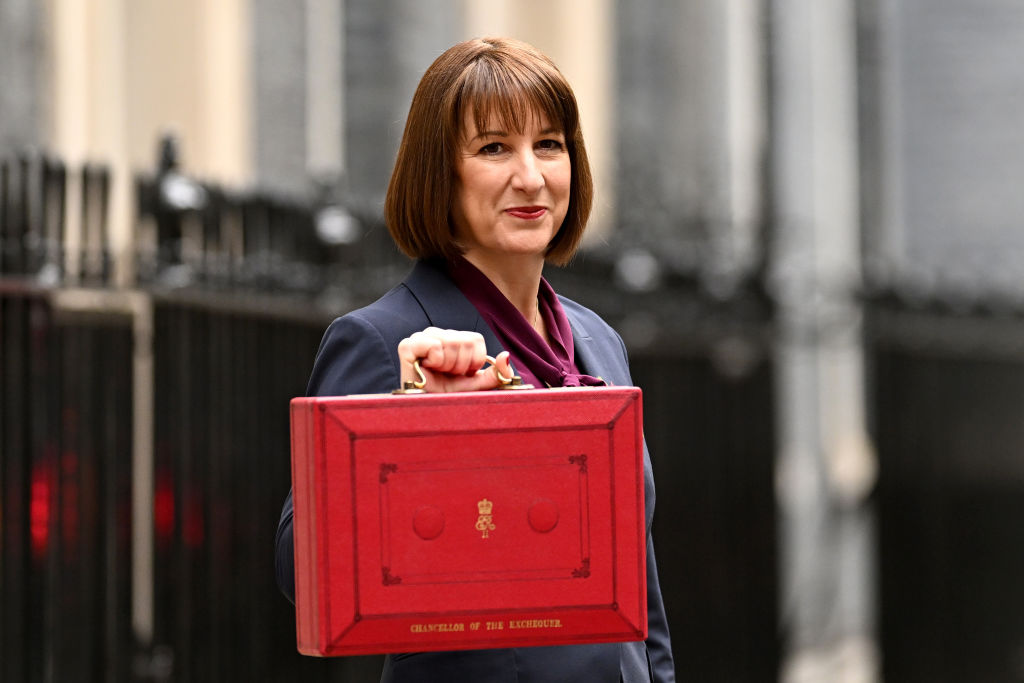Editor’s Note: This story first appeared in balance, Artnews Newsletters about the art market and other regions. Register here Accept it every Wednesday.
The rich seem to abandon Britain in the struggle, and the newly initiated tax rules do not help. Several art dealers and consultants told Artnews They are concerned about how these rules will affect the country’s art market and whether it will prompt more collectors to push their art elsewhere.
While Brexit may have begun Exodus, the current Labor government’s scrapping of non-obligatory tax rules has taken up the most heat. Last October, Labor announced in its budget that it would repeal the current rules currently targeting non-DOMS in the UK, or that for tax purposes, British residents of its permanent residence would be repealed. The new rules that will come into effect in April will require all UK residents to pay tax on their income, no matter where they earn their income. The UK Treasury predicts that the policy will raise £33.8 billion over the next five years. And, of course, it will affect the rich to the greatest extent.
(Those who support ending tax breaks believe that the funds raised can be used to offset the public service strangled in the UK.)
Investment immigration consultant Henley & Partners and Global Analytics’ 2024 report New World Wealth found that over 10 million people (including 7.8 billionaires and 1.2 billion yuan) left the UK last year, an increase of 157% from 2023. Global Wealth Report It is predicted that by 2028, 500,000 people will leave the country (Henley report defines a millionaire with net liquid assets, while UBS includes assets such as art and property.
Peter Ferringo of Henry & Partners said the new tax rules “snatch Britain from billions of dollars in investment capital, especially for Americans who are keen to leave the United States.”
“Brexit and the closure of UK investor visa routes mean that few net worth individuals will replace [the departed millionaires] In the tax system,” he told Artnews.
The situation is further exacerbated by the “importance” of the London Stock Exchange, the United States and Asia’s dominance in technology and the “importance” of the high capital gains tax in the UK, Henry analysts said.
Critics have slammed the Labor Party’s move, although it mentioned that the previous Conservative government was also working to overhaul the non-tax system. In January, the UK announced that the new tax system would be phased out more gradually, but many believe that either way too many millionaires and art collectors were driven out of the door.
Jussi Pylkkänen, former global president of Christie and founder of London-based ArtPylkkänen, told the London Art Market that it has hardly helped the London art market. ” Artnews.
“It’s not smart because there’s a great structure here that supports them a large number of young artists, agents and museums, as well as auction houses and galleries, which bring countless wealthy international collectors to buy in the main and secondary markets,” he said. From any imagination, art collectors are not all millionaires. Obviously, foreigners come to Britain to enjoy art and the cultural works of this country. On many levels, it is obviously a mistake to dissuade them from visiting regularly, or even settle here. ”
French art dealer Almine Rech has locations in London, Paris, Brussels, New York, Shanghai, Monaco and GSTAAD Artnews Some of her London collectors have left the country.
“Once people walk away and settle elsewhere, they usually don’t come back – when money leaves one place, that’s bad.” As for whether London lost its place in the global art world last fall – Rech speculated that Russian collectors may return once the Ukrainian war was resolved. She added: “I believe the UK has a strong responsive capacity.”
Milo Dickinson, managing director of the London-based Simon Dickinson Gallery, mainly engaged in old paintings. Artnews The ongoing outflow is a “worrying development.”
“This will affect London’s position in the art market and harm many businesses downstream of the art market, such as high-end restaurants, makers, protectors and shippers,” he said.
Dickinson added that while his gallery (a record year in 2024) would not be “significantly affected” due to its “very international customer base”, young art dealers are likely to be “reluctant to open stores in London”.
However, not all art dealers are bleeding millionaires in the UK losing sleep.
Austrian dealer Thaddaeus Ropac said he felt the phenomenon in his London location, with some of his UK customers changing their addresses, but the city remains a “critical mass” and he does not expect “significant changes” in the overall sales activities of the London art market.
“London is Europe’s largest art market with the largest turnover, and the city has been trying to reinvent itself,” he said. “Collectors will always come to London, so I’m relaxed.”
Ropac just announced a new gallery in Milan last month to add to his other locations in Paris, Salzburg and Seoul, but he insisted that the plans were years-long and had nothing to do with the British or other former British residents.
(Since 2017, Italy has provided favorable flat fee taxes for ultra-high net worth individuals who have transferred their tax residency rights to the country. However, last year, the government doubled the tax rate to 200,000 euros.)
Jo Stella-Sawicka, senior director of Goodman Gallery, owned space in London, New York, Johannesburg and Cape Town, agreed to Ropac. “London’s collector base has always been a dynamic combination of UK and international clients, both for business, education or lifestyle, they think of the city.” Artnews. “While the shift in non-dom status has affected this landscape, we are also seeing a positive trend as more American and South Asian collectors spend a lot of time in London and invest in homes here.”
Sotheby’s doesn’t seem to worry either. House taxes, heritage and British museums and trustees Julian Washington told Artnews Reports about millionaires leaving the country should be “somewhat doubtful”.
“Indeed, many wealthy people have left because of changes in the country’s tax system, but the tax tail shouldn’t bite the dog,” he said, raising questions about whether the “most important factor” of these elite members is really the “most important factor.” “If so, they will have to build a whole new life elsewhere.”
Christie and Phillips declined to comment on the new rules, while the U.K. Treasury did not respond ArtnewsQuestions about how they might affect the art market.
Like many other things in the art market, we just have to wait and see if it’s an optimist or a pessimist who proves right.













